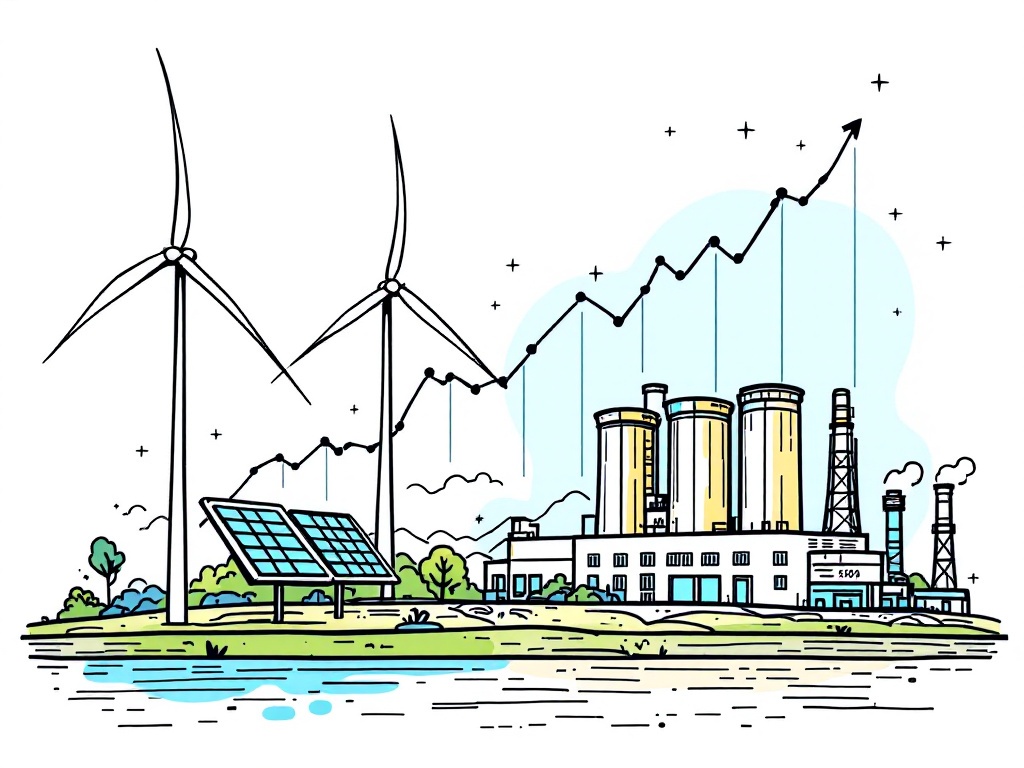Renewable Energy Costs Projected to Outperform Carbon Capture by 2050

Washington D.C., Sunday, 16 February 2025.
A recent study suggests that transitioning completely to renewable energy by 2050 is more cost-effective and beneficial for both the environment and public health compared to carbon capture.
Economic Advantage of Renewable Transition
A groundbreaking study published on February 13, 2025, in Environmental Science & Technology demonstrates that sourcing energy entirely from renewable sources would significantly reduce global energy costs [1]. According to lead researcher Mark Jacobson from Stanford University, investing in carbon capture technology instead of renewable energy actually increases overall costs and environmental impact [1][2]. The study reveals that spending on carbon capture leads to higher CO2 emissions, increased air pollution, greater energy requirements, and elevated infrastructure costs compared to investing in wind, water, and solar alternatives [1][2].
Comprehensive Global Analysis
The research team analyzed 149 countries over a 25-year period, comparing two distinct scenarios [1]. The first scenario examined a complete transition to renewable energy sources, including wind, solar, geothermal, and hydropower, while incorporating energy efficiency improvements and hydrogen fuel cell commercialization [1]. The second scenario maintained fossil fuel dependence with partial renewable adoption and carbon capture technology [1]. The findings indicate that eliminating fossil fuels could reduce end-use energy needs by over 54% [1], with annual energy costs potentially declining by nearly 60% [1].
Health and Environmental Benefits
Beyond economic advantages, the transition to renewables promises substantial public health benefits. The study projects that switching to clean energy could prevent hundreds of millions of illnesses and approximately 5 million deaths annually from air pollution [1]. As Jacobson emphasizes, replacing fossil fuel plants with renewable alternatives eliminates both CO2 emissions and various forms of pollution simultaneously [2]. The research strongly critiques current policies promoting carbon capture and direct air capture, suggesting they fail to distinguish between effective and ineffective solutions [1][3].
Global Implementation Challenges
While the economic case for renewables appears compelling, the study acknowledges the complexity of global implementation. Current carbon capture technologies are not only expensive and energy-intensive but also lack the additional benefits that come with renewable energy adoption [3]. The research suggests that policymakers should prioritize direct investment in renewable infrastructure rather than diverting resources to carbon capture technologies [2]. This conclusion is particularly relevant as countries worldwide evaluate their energy transition strategies and climate commitments for 2050 [1][2].